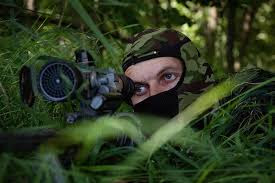Russia cannot beat Ukraine on the battlefield. And the only way it can hold occupied territories is by destroying all the structures and deporting all the citizens.
Even if can hold much of what it now occupies, its grip will loosen as the meager benefits decline further while the costs rise. JL
David Ignatius reports in the Washington Post:
Putin still seems to believe he can exhaust Ukraine. But Putin must contend with a propaganda battle he’s losing; a partisan warfare campaign inside territories Russia claims to have annexed; and growing political fragmentation at home. One of Ukraine’s hidden strengths is the “porcupine strategy.” Ukraine has proved indigestible for the Russian military. Putin’s assault on Kyiv in the early months was a disastrous failure. The porcupine pushed the invaders back last year in Kharkiv and Kherson. And now, kilometer by kilometer, Ukraine is slowly advancing in the south and east.Whatever else you might say about the Ukraine war, that strategy has worked. Ukraine has proved utterly indigestible for the Russian military. Putin’s assault on Kyiv in the early months was a disastrous failure. The porcupine pushed the invaders back last year in Kharkiv and Kherson. And now, kilometer by kilometer, Ukraine is slowly advancing in the south and east.
“We adopted a strategy to make it as challenging as possible for Russia” if it invaded, explained Jon Finer, the deputy national security adviser. And it worked: Russia didn’t swallow Ukraine, and it probably never will.
Ukraine’s goal has now shifted from blocking the invaders to driving them out. But breaching Russian minefields has been agonizingly difficult — and costly in lives and equipment. Ukraine might yet achieve its goal of cutting the Russian corridor to Crimea this year and putting that prize at risk. But in just three months, October’s mud is likely to stall Ukraine’s advance.
Putin still seems to believe he can exhaust Ukraine. Perhaps he imagines that if his battered army holds on, a pliant Donald Trump will return to the White House and give him what he wants. But Putin must contend with what I’d call the “three Ps” — a propaganda battle that he’s losing; a partisan warfare campaign inside territories Russia claims to have annexed; and growing political fragmentation at home.
“‘Waiting us out’ may be a bad bet on their part,” argues one senior administration official. I think he’s right.
On the propaganda front, the fence-sitters of the Global South appear to be leaning toward Ukraine. Representatives of Brazil, India, South Africa and Turkey met this past weekend in Jeddah, Saudi Arabia, to hear Ukrainian officials outline a peace proposal that centers on full withdrawal of Russian forces. A Chinese representative attended the gathering, which Ukraine’s foreign minister called a “breakthrough” and “a historic victory.”
Russia’s response has been denial: Deputy Foreign Minister Sergei Ryabkov sputtered that the “futile” meeting was “doomed to failure.”
Let’s turn to partisan warfare, and Ukraine’s armed resistance to Russia’s attempts to swallow the four regions it “annexed” last year. Social media reports describe a string of guerrilla attacks this year. Take the Zaporizhzhia region that borders the Sea of Azov:
Russian officials or collaborators there were hit by two car bombs in January; an IED in February; a car bomb in March; a bomb in April; and two car bombs, a blown railway line and a sniper attack in June.
1/6
End of carouselPartisans in occupied Crimea reportedly blew up a gas pipeline in March and attacked railway lines in May and June and an ammunition dump in July. It’s a dirty war. Fighters are said to have attacked one collaborator while he was in a barber shop in Luhansk; they reportedly poisoned Russian officers who were celebrating Russian Navy Day in Mariupol, killing two and wounding 15.
Russia has cruelly tried to suppress resistance in these regions — transporting children from the occupied areas to Russia and forcing residents to obtain Russian passports for medical care. These ghastly tactics are reminiscent of Joseph Stalin’s attempts to transfer populations and redraw borders. But the result now for Russia will probably be to create more indigestible lumps of opposition.
Putin might imagine he can turn Ukraine into another “frozen conflict” if he drags the fighting on. But a generation of Ukrainians is learning to hate Russians, and the guerrilla-style combat will continue. Ukraine’s goal “is to put the lie to Russia’s claim of annexation and show how costly this will be,” says the senior U.S. official.
Finally, Putin faces increasing problems at home because of the convulsions created by his misadventure in Ukraine. A brilliant summary of Russia’s growing political disarray was published in Foreign Affairs this week by Tatiana Stanovaya, a well-connected analyst with the Carnegie Russian Center.
“The war has begun to change Russia, and profound internal shifts are likely underway — in Putin’s regime, in the elites’ perception of Putin, and in the public’s attitude toward the war,” she writes.
A fragmenting, demoralized Russia is a devil’s playground. In their disorientation, Russians seek order and victory. According to internal polls cited by Stanovaya, Russians support Putin more strongly than before the war, they’re angrier at the West and they express strong support for their troops. Russia’s internal disarray poses a severe dilemma for Putin, but it’s very dangerous for the West, too.
The simple fact is that Russia is choking on Ukraine. The porcupine won’t get any easier to swallow, no matter how long the war lasts.




















0 comments:
Post a Comment